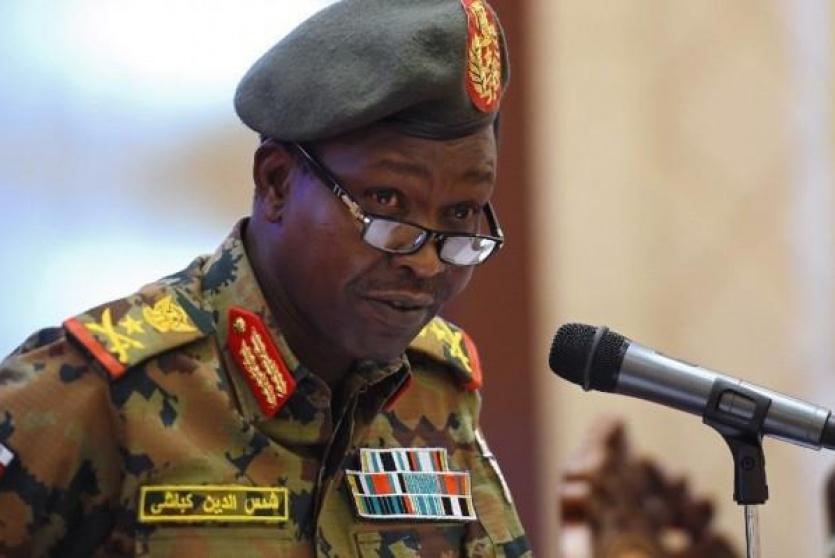
The Egyptian government and a delegation from Sudan’s Rapid Support Forces (RSF) convened in Cairo few months ago to “safeguard Egypt’s neighborhood,” underscore the unity of Sudan, and work towards mitigating the military situation in the country.
This meeting in Cairo was followed by what was planned to be 3 additional meetings between the Assistant Commander-in-Chief of the Sudanese Army, Lieutenant General Shams al-Din Kabbashi, and the Second Commander of the Rapid Support Forces, Abdul Rahim Dagalo, in Bahrain’s capital, according to a report by Sudanese journalist Nabeil Shakoor.
However, after meetings on January 6 and 20th, Sudan army’s second in command Kabashi did not attend the last planned meeting, which was supposed to iron out the differences on outstanding issues, leading to the collapse of Manama talks.
Collapse came as a result of Kabashi’s absence from the last meeting that was scheduled to reach understandings on the outstanding issues, and that the collapse of talks was the reason for the expansion of military operations in Khartoum and Kordofan, while the Rapid Support Commander threatened in an audio recording to reach other cities.
Manama talks roadmap
The first meeting on January 6 was also attended by intelligence heads from Bahrain, Egypt, and the UAE.
According to sources, the discussion in the first meeting revolved around the cessation of hostilities, along with further deliberations on the Jeddah Agreements.
On January 20, the second meeting took place between the two parties, with the involvement of the United States and Saudi Arabia, alongside Bahrain, Egypt, and the Emirates represented at the ambassadorial level.
During this meeting, the two parties agreed upon general principles encompassing 21 items.
Reports indicate that the agreed-upon principles included the creation and establishment of a professional and national army, drawing from all forces, including the army, RSF, and armed movements.
The matter of a unified army was thoroughly discussed, and post-war, the concept of merging forces was abandoned. Instead, an agreement was reached to reconstruct and establish a unified, professional national army.
Additionally, they agreed on the importance of reforming and reconstructing all civil state institutions, conducting a “comprehensive” national dialogue, and tackling the economic and humanitarian crises resulting from the war.
The talks also underscores the necessity for the armed forces to refrain from aligning with any specific ideology or party affiliation.
The agreed-upon principles call for the dismantling of the June 30 regime, apprehending individuals who escaped from prison, and surrendering those sought for criminal prosecution.
Along with endorsing a federal system of government, the state is mandated to maintain impartiality towards all religions and ethnicities.
As per the sources, the agreement also established a framework for a democratic civil government, where access to power is determined through free and fair elections at the conclusion of the transitional period.
Army rejects agreement, walks out again
Talks collapsed after army delegation rejected the stoppage of military hostilities and freezing of the movement of troops, and instead demanded that RSF withdrawal from all bases it controlled.
A source indicated that the mediation involved experts who presented international models and past conflicts, illustrating methods to halt hostilities. Despite the army delegation initially agreeing to most of the proposals, they later returned and declared their rejection of the accord and demanded RSF give up the military bases it controlled.
In a manner reminiscent of the events at Jeddah Summit in Saudi Arabia, following the initial agreement between Kabashi and Abdul Rahim on established principles, the Assistant Commander-in-Chief of the Sudanese Army, citing crucial commitments, was conspicuously absent from the third meeting, where conclusive agreements on unresolved issues were slated to be reached.
According to observers an Islamists initiated a media campaign against Kabbashi’s meeting with Dagalo is the primary factor leading to the breakdown of discussions and the failure to reach an agreement.
The discussions in Manama were intended to ultimately facilitate a direct meeting between the army chief, al-Burhan, and the RSF leader, Dagalo.
Sudan has since April 15, 2023 been plunged into a civil war pitting army chief General Abdel Fattah al-Burhan against RSF Commander Mohamed Hamdan Dagalo.
The conflict has resulted in a devastating toll, with over 12,190 casualties and the displacement of more than seven million people, according to estimates by the Armed Conflict Location and Event Data Project and UN figures, respectively.
Mediation efforts have faced significant obstacles due to deep-seated animosity between the rival factions. Despite Burhan’s administration continuing to issue statements as Sudan’s government, Dagalo’s Rapid Support Forces assert control over Khartoum’s streets, Darfur, and a substantial part of Al-Jazira, once Sudan’s vital agricultural region.
